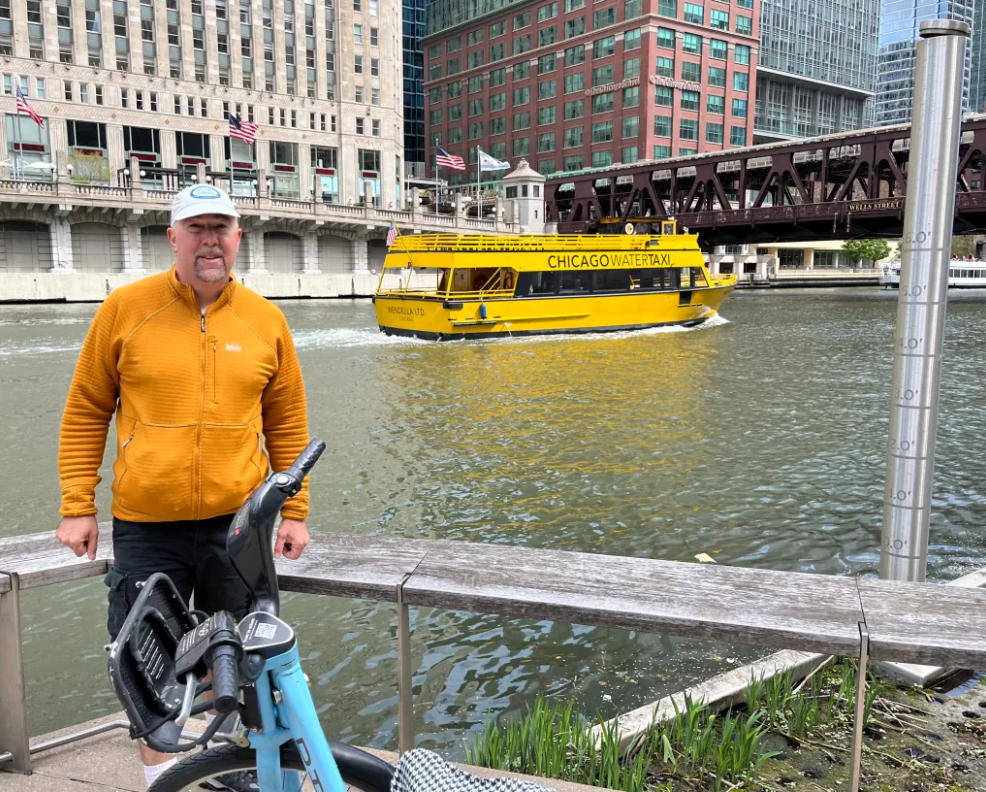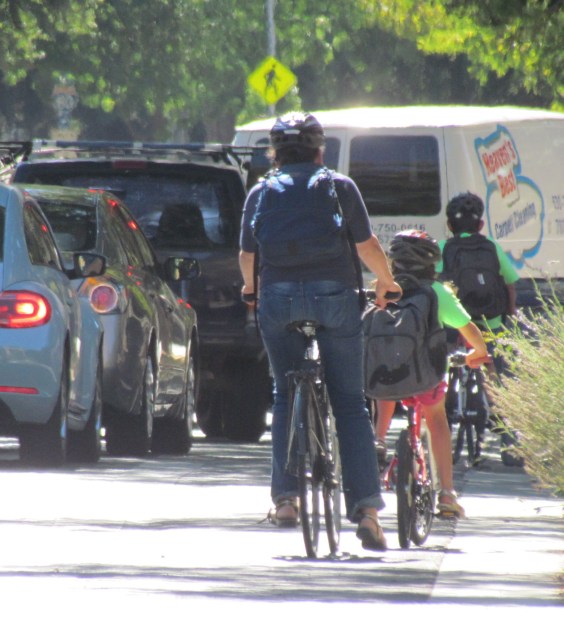Editorial: Own it, L.A. Politicians–You’re Trying to Kill California’s Bullet Train
4:41 PM PDT on June 30, 2021
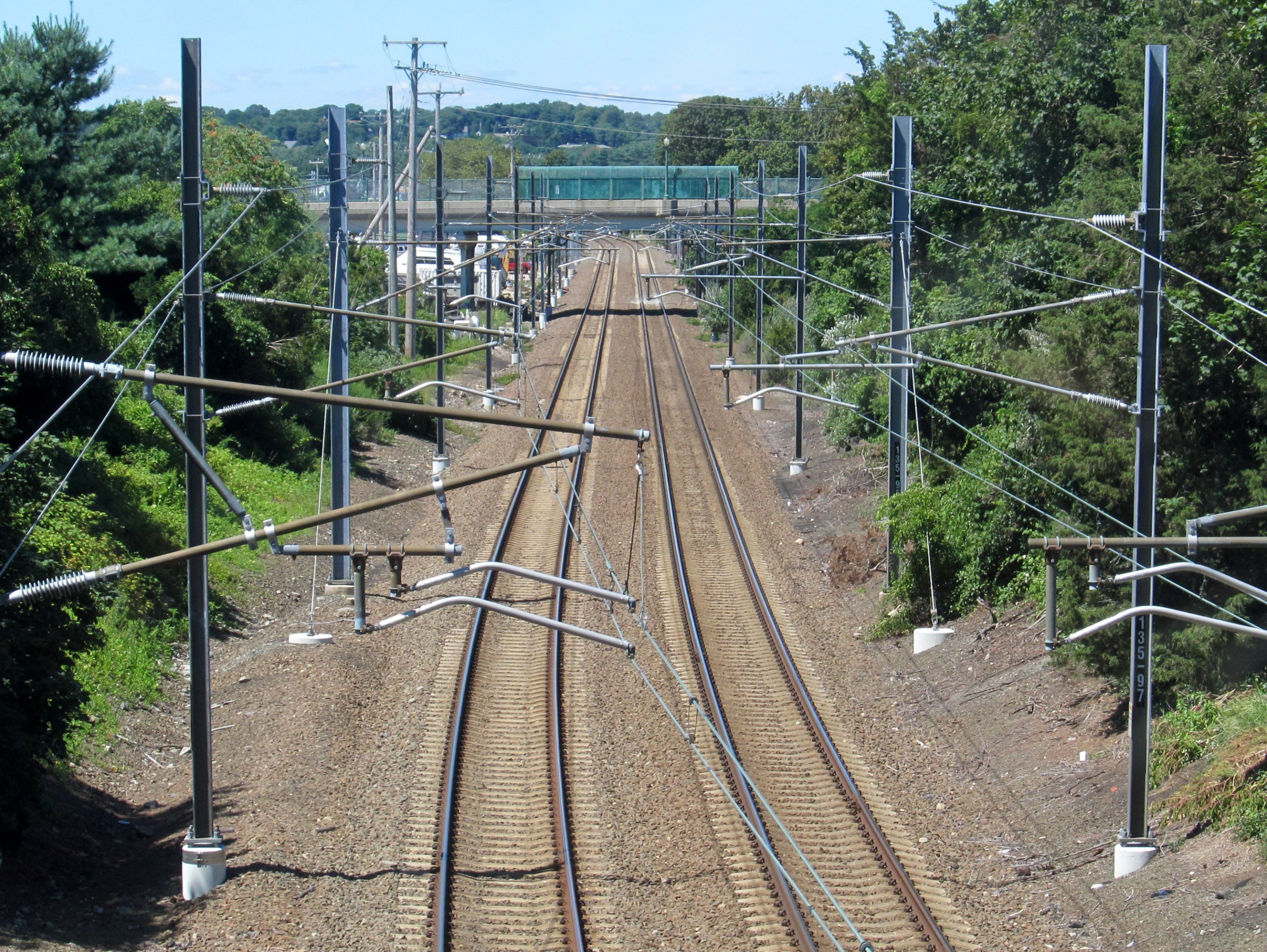
Overhead electrification in Connecticut. Why are so many politicians opposed to this? Photo: Wikimedia Commons
California Assembly Speaker Anthony Rendon sent a letter to U.S. DOT Secretary Pete Buttigieg Tuesday, arguing that the feds should amend an agreement for almost $1 billion in approved and committed funds intended to help finish the 119-mile Central Valley spine of the bullet train project. He wants the DOT to allow California to use the money and build California High-Speed Rail without overhead electrification–meaning it wouldn’t actually be high-speed rail at all.
As technology advances at a rapid pace, it's important to ensure California's high speed rail program isn't being left behind.
— Anthony Rendon (@RendonAD62) June 29, 2021
My colleagues and I respectfully ask Secretary @PeteButtigieg to amend the settlement agreement, so California can use the best tech available. pic.twitter.com/pGQ08aViOD
The letter argues that improving battery technology will make overhead wire obsolete, so, presumably, the money shouldn't be used for that purpose.
But a bullet train isn't a Tesla.
Yes, huge strides have been made in improving the amount of energy available from batteries while reducing their considerable weight. And battery-powered trains are being tested. But those are intended for specialized services or to bridge gaps between electrified routes, and not for anything that goes at high speeds. That's because speed requires enormous amounts of power. If you want to go 200 mph for a sustained period of time, well, that won't happen with any batteries currently on the horizon.
"It requires four times the energy every time you double the speed. Neither batteries nor fuel cells will ever be light enough to store enough energy to sustain 220 mph," Rick Harnish of the High Speed Rail Alliance told Streetsblog.
An engineer who specializes in HSR technology, but asked not to be identified in this story, pointed out that even if some theoretically advanced battery had enough power for HSR, the weight of it would quickly wear out the tracks. "Trying to compare the energy required for a two-to-three-car local/regional electric multiple unit train operating at 87 mph to an eight-plus-car high-speed train operating at 220 mph, and saying that minor technological advances will cover that difference in a few years is either just disingenuous or ignorant," he said. That doesn't mean battery powered trains don't have any future in California's rail networks; they just won't work for high-speed rail.
This isn't the only part of Rendon's letter that shows how ignorant (or disingenuous) he is about trains. For example, the letter mentions avoiding "the need for an overhead line or a third rail." [Emphasis added]
Third rail is used in subways and some suburban and regional rail networks. Nobody uses it for high-speed rail anywhere in the world, for reasons that have to do with safety and, again, the physics of electricity and what's involved in propelling a train at 200 mph. It isn't necessary for Rendon and colleagues to understand why, but they should at least know that no HSR system is electrified with third rail, and that there must be some reason for it.
But he's not just wrong about the technology. The letter incorrectly states that the bond approved by voters in 2008 made no mention of electrified trains in the first place.
Yes, it did. It's mentioned multiple times in the arguments presented in the voter guide and in the proposition itself:
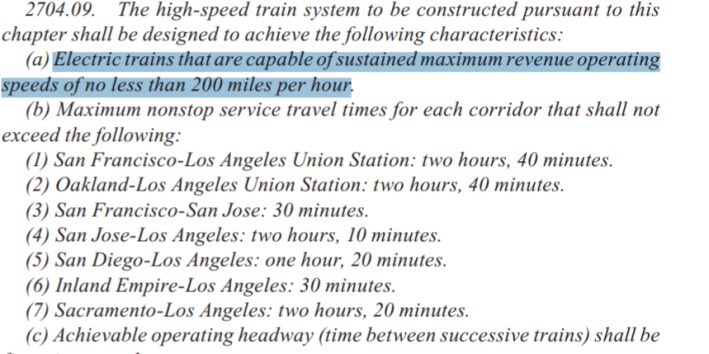
And as seen above, the measure includes travel time requirements that make anything less than full electrification - using overhead wire, not third rail - impossible. "Even if we ignore the electrification requirements, right now there is no other technology tested and in service capable of the speeds and trip times we’re working to achieve," wrote the California High-speed Rail Authority's Michele Boudreau in an email to Streetsblog.
This is arguably the most important project in the state, and it's certainly the biggest infrastructure project in California, if not the U.S. Meanwhile Assemblymembers Rendon, Luz Rivas, and Laura Friedman (both of whom co-signed Rendon's poison pill letter) are busy pulling shenanigans in the state budget negotiations, where they are trying to de-fund it. Even as they take steps to sabotage high-speed rail, they still claim to support it. They offer constantly changing rationales for their actions. Remember when this was about eliminating transfers? But they can't claim anymore that they just want the funding diverted to Southern California commuter train service, because Governor Newsom allocated funding for those purposes in his proposed budget - and anyway why can't that come from highway construction pots?
They need to own it: this letter makes it screamingly obvious that they have aligned themselves with oil-funded Republicans, such as House Minority Leader Kevin McCarthy, who just want high-speed rail to die. Remember, the money that is the topic of Rendon's letter is the same previously approved grant that Republicans tried to jam up during the Trump Administration. While ultimately unsuccessful, it caused delays and helped jack up the costs of the project even further.
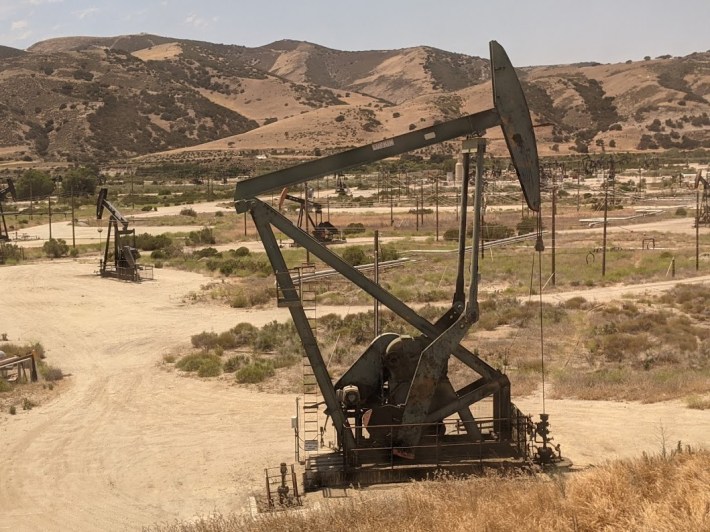
Trying again to blow up these funds under the Biden Administration, jam up electrification, and kill high-speed rail is a bad look for Democratic politicians, many of whom sell themselves as dedicated environmentalists. Streetsblog expects Secretary Buttigieg to file Rendon's letter in the receptacle where it belongs.
Read More:
Stay in touch
Sign up for our free newsletter
More from Streetsblog San Francisco
Streetsblog SF editor Roger Rudick offers constructive criticism of Chicago’s downtown bike network
"There were blocks that felt very safe and very secure," he said. "But then you're immediately – voom! – disgorged into three lanes of moving traffic with no protection."
Commentary: There is Zero Ambiguity to the West Portal Tragedy
What happened in West Portal was entirely predictable and preventable. The city must now close Ulloa to through traffic and make sure it can never happen again
